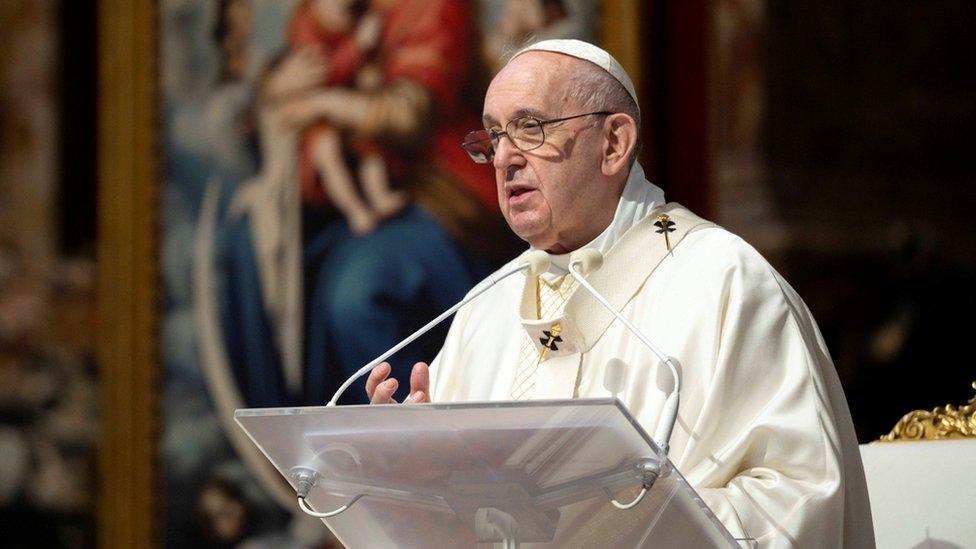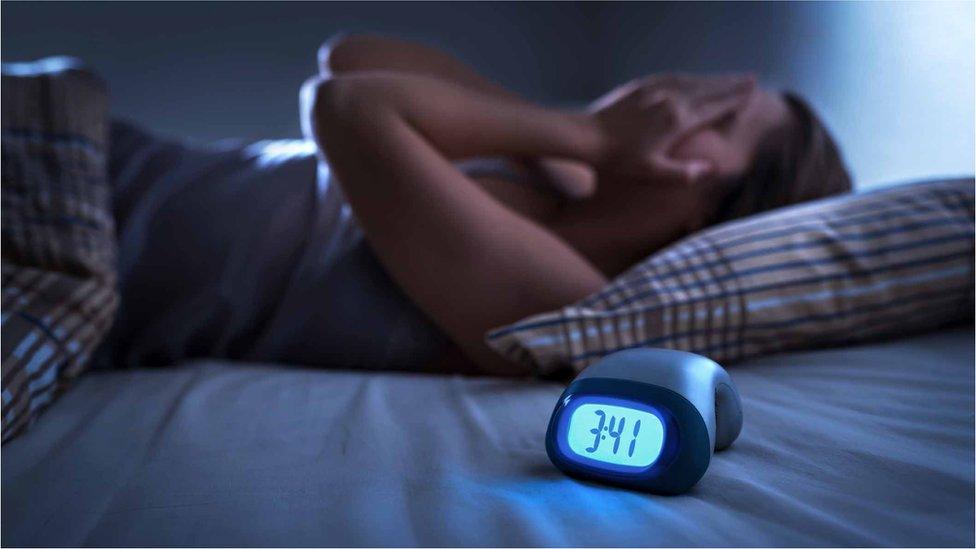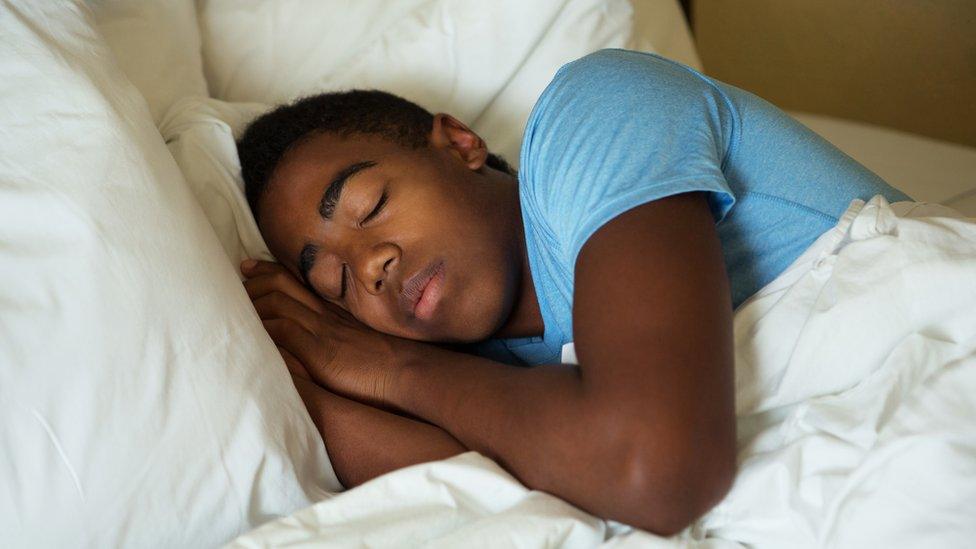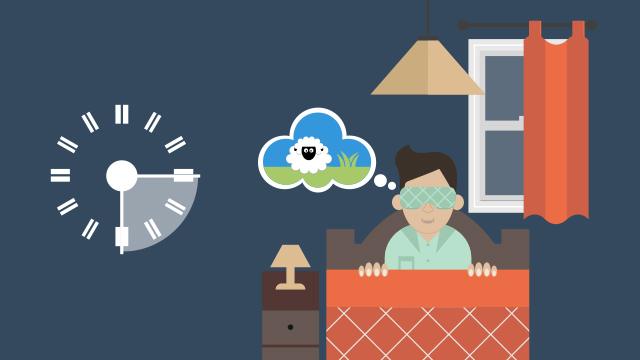Rethink: Will companies help us improve our sleep habits?
- Published

Sleep scientist Matthew Walker hopes that improved resting habits that have emerged during the pandemic can be incorporated into our future life. Could companies adjust their working patterns, for example, to help employees sleep better, he asks.

Our sleep does seem to have changed during the pandemic.
There is some emerging data from some sleep-tracking companies that suggests people are going to bed at different times from before, but also, typically, on average, waking up a little bit later.
Now, for some people overall that means that they are getting actually more sleep. I think what we'll find is that when we look at the data, there's probably at least two clouds of results.
There are some people during the pandemic who will have been struggling with sleep and been getting less, and it's more difficult - and then others who are actually getting more.
Companies can try to allow employees to start sleeping in a much more compatible way with their biology
But I think what we're really seeing in this data is that people are starting to sleep more in harmony with what we call your chronotype. In other words, are you an evening person, are you a morning person, or are you somewhere in-between?
And it turns out, by the way, that you don't really get a choice in that. It's largely genetically determined, so it's hard-wired. But what does this mean for the future, or what could it mean for the future in terms of sleep?
Well, perhaps when people return to work, what if we asked everyone to fill out a very brief set of questions and we asked them about their preferred sleep times - when they would prefer to wake up, when they would prefer to go to bed?
Companies can then start to try to accommodate - as much as they can - people's individual work schedules. And in that way they allow the employee to start sleeping in a much more compatible way with their biology, rather than in conflict, which is what many of us seem to do in this modern world.
Society is really designed to bias and favour these morning types, but there's a great big range, and as a consequence we could have better-rested employees, better-rested leaders.
We know that more sleep does equal more productivity. It's not true that less sleep equals more productivity, it's the opposite - and people utilise fewer healthcare resources when they're better slept. There could be manifold consequences.
There's probably a second implication here, and it comes on to immunity.
What we know is that there is a very intimate relationship between your sleep health and your immune health - and one example I think has implications for the coronavirus.
Researchers found that if you're not getting sufficient sleep in the week before you get your standard flu shot, you produce less than 50% of the normal antibody response, rendering that vaccination far less effective.
So what is an idea for the future?
Well, perhaps we can start to inquire about people's sleep as they're coming in for their Covid vaccination.
Can we try to enhance immunity, enhance the effectiveness of that vaccination, simply by timing that vaccination with the moment when people are well rested. when they are best slept?
I think that could be an interesting idea, based on the scientific data we already have.

BBC Radio 4, Radio 5 Live and World Service have come together for a unique collaboration: BBC Rethink. It asks how society and our lives can change for the better after the Covid-19 crisis.
You can hear the BBC Rethink episodes on BBC Sounds.
Read the other essays:
The Pope talking about poverty
Author Tara Westover on people coming together
Poet Caleb Femi on education
Writer Lucy Jones on why people are falling back in love with nature

- Published22 June 2020

- Published4 June 2020

- Published23 January 2020

- Published12 May 2014
